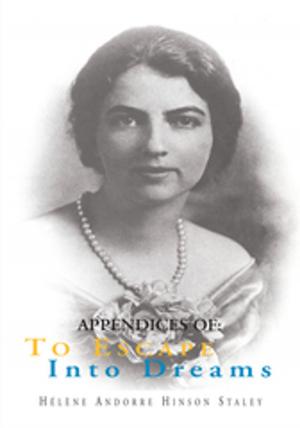Unattainable Age of Reason
Ten Stages of Life
Nonfiction, Health & Well Being, Self Help, Biography & Memoir| Author: | Teata | ISBN: | 9781483601410 |
| Publisher: | Xlibris US | Publication: | June 29, 2013 |
| Imprint: | Xlibris US | Language: | English |
| Author: | Teata |
| ISBN: | 9781483601410 |
| Publisher: | Xlibris US |
| Publication: | June 29, 2013 |
| Imprint: | Xlibris US |
| Language: | English |
INTRODUCTION
The Age of Reason
Why I decided to write this book:
It is with anticipation that someone will read this and will find some kind of comfort in knowing that not everything you do in your life is under your control that those uncontrollable situations in your life will dictate the direction your life will take.
Writing my life for the public to read is validating my life and my innocence.
The age of reason (Canon law): an age at which a person is considered capable of making reasoned judgments.
In the Roman Catholic Church, the age of reason, also called the age of discretion, is the age at which children become capable of moral responsibility. On the completion of the seventh year, a minor is presumed to have the use of reason, but mental retardation or insanity could prevent some individuals from ever reaching it.
Children under the age of reason and the mentally handicapped are sometimes called innocents because of their inability to commit sins: even if their actions are objectively sinful, they sometimes lack capacity for subjective guilt. (Wikipedia)
INTRODUCTION
The Age of Reason
Why I decided to write this book:
It is with anticipation that someone will read this and will find some kind of comfort in knowing that not everything you do in your life is under your control that those uncontrollable situations in your life will dictate the direction your life will take.
Writing my life for the public to read is validating my life and my innocence.
The age of reason (Canon law): an age at which a person is considered capable of making reasoned judgments.
In the Roman Catholic Church, the age of reason, also called the age of discretion, is the age at which children become capable of moral responsibility. On the completion of the seventh year, a minor is presumed to have the use of reason, but mental retardation or insanity could prevent some individuals from ever reaching it.
Children under the age of reason and the mentally handicapped are sometimes called innocents because of their inability to commit sins: even if their actions are objectively sinful, they sometimes lack capacity for subjective guilt. (Wikipedia)















